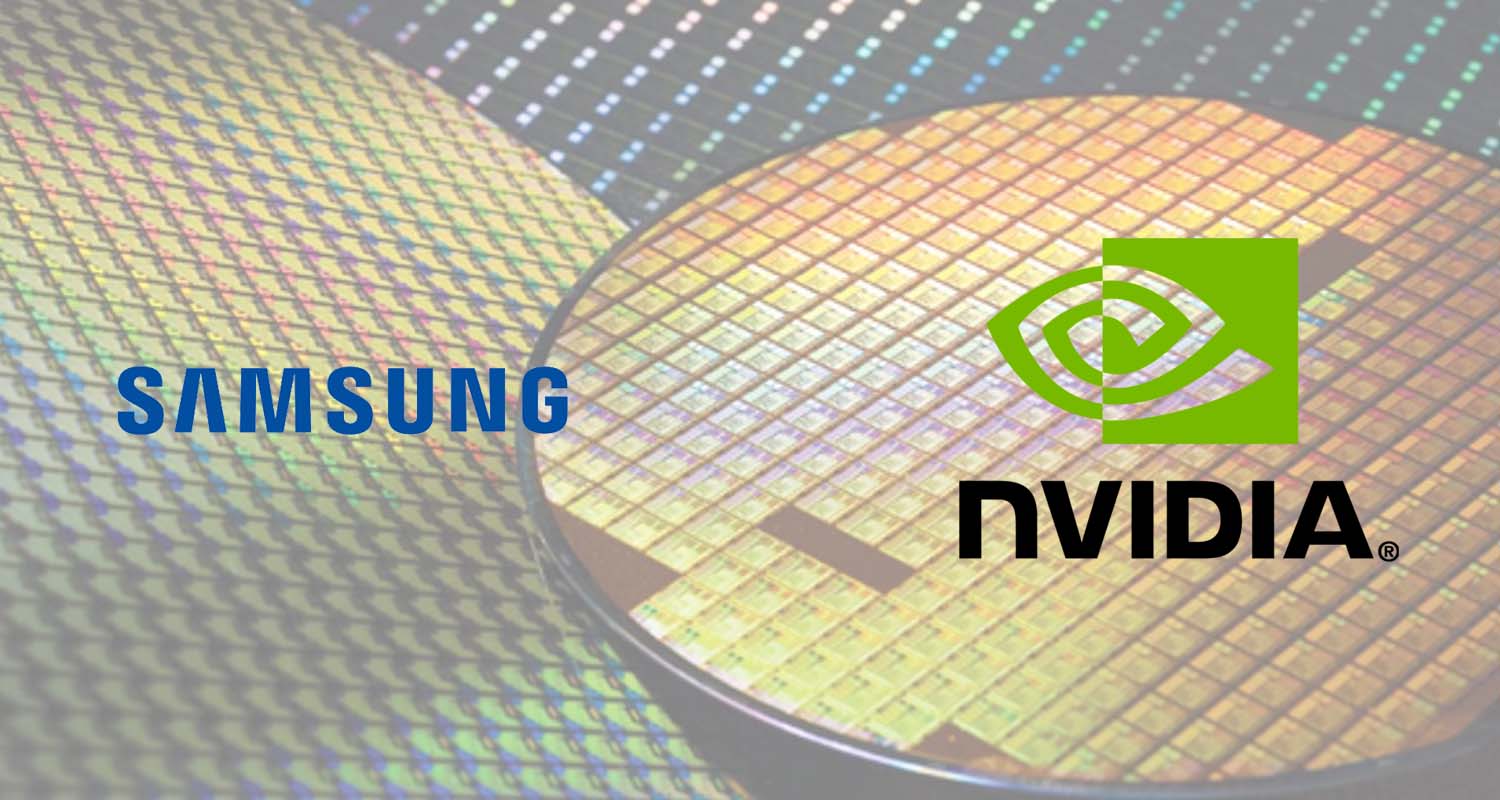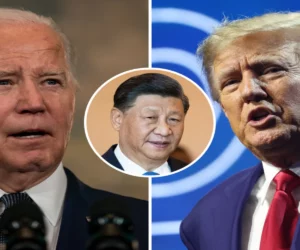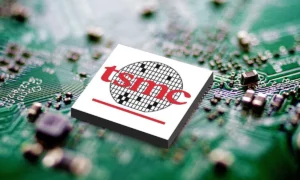Introduction:
In a significant upheaval within the semiconductor industry, Samsung has secured a monumental $752 million AI chip order, dealing a substantial blow to NVIDIA’s dominance in the AI accelerator market.
Samsung recently revealed details about their first AI accelerator chip, named Mach-1. Their goal is to compete with Nvidia, a dominant force in this market.
This development underscores Samsung’s aggressive push to establish itself as a formidable player in the semiconductor arena, challenging the established hierarchy and reshaping the competitive landscape.
Follow us on Linkedin for everything around Semiconductors & AI
Background:
Key players such as NVIDIA have long dominated the semiconductor industry, leveraging their expertise in AI computing and graphics technology.
Samsung secured a $752 million deal with Korean internet giant Naver Corp. to supply them with Mach-1 chips. This win potentially takes away business Nvidia might have gotten.
This deal signifies a couple of things. First, Samsung is seriously entering the AI chip game. Second, companies like Naver are looking for alternatives to Nvidia, which reduces Nvidia’s control over the market. It’s a positive sign for competition and potentially better options for consumers.
However, Samsung’s emergence as a challenger marks a seismic shift in market dynamics. Moreover, Leveraging its extensive experience in chip manufacturing and innovative design capabilities, Samsung aims to disrupt the status quo and capture a significant share of the lucrative AI accelerator segment.
Read More:Did Micron Just Shock Analysts with a $204 Million Operating Income Beat? – techovedas
Samsung’s Mach-1: A Technological Marvel
Central to Samsung’s triumph is the Mach-1 AI accelerator chip, lauded for its unparalleled performance and groundbreaking architecture.
Unlike NVIDIA’s conventional approach, which relies on GPUs and HBM chips, the Mach-1 harnesses Samsung’s proprietary processors and low-power DRAM chips.
This revolutionary design minimizes data bottlenecks and delivers superior power efficiency, positioning the Mach-1 as a game-changer in AI acceleration technology.

Here’s a breakdown of Samsung’s Mach-1 AI chip compared to Nvidia GPUs:
Focus:
- Mach-1: Designed for AI inference. This means it excels at running existing AI models efficiently, particularly at the “edge” of networks, where low power consumption and smaller size are important.
- Nvidia GPUs: Offer general-purpose processing. While great for AI, they can also handle graphics processing, scientific computing, and other demanding tasks.
Performance:
- Mach-1: Targets efficiency over raw power. It boasts significant reductions in memory bandwidth requirements compared to Nvidia GPUs. This translates to lower power consumption and potentially lower cost.
- Nvidia GPUs: Offer higher overall performance. They pack more processing power for applications that need maximum speed.
Memory:
- Mach-1: Utilizes low-power DRAM for memory, making it suitable for situations where size and power efficiency are crucial.
- Nvidia GPUs: Often use high-bandwidth memory (HBM), which provides faster data transfer but consumes more power.
Overall:
- Mach-1: Ideal for cost-sensitive, low-power AI applications at the network edge, like running smart speakers or image recognition on mobile devices.
- Nvidia GPUs: Remain the go-to choice for powerful, versatile processing for AI development, training, and high-performance computing tasks.
Think of it like this: Mach-1 is a fuel-efficient, compact car designed for city driving, while Nvidia GPUs are powerful sports cars built for speed and handling on any terrain.
Read More: What’s the Dynamic Relationship Between Elon Musk’s Ventures and NVIDIA – techovedas
Strategic Partnership with Naver Corp.:
Samsung’s strategic collaboration with Korean internet giant Naver Corp. underscores the Mach-1’s market potential and appeal.
The landmark deal, valued at up to $752 million, reflects Naver’s confidence in Samsung’s AI acceleration solutions and its commitment to reducing dependence on NVIDIA for AI chips.
By leveraging Samsung’s cutting-edge technology, such as Naver aims to bolster its AI capabilities and gain a competitive edge in the rapidly evolving digital landscape.
Moreover, this partnership signifies a significant shift in the semiconductor market dynamics, challenging the traditional dominance of established players like NVIDIA.
Furthermore, Samsung’s Mach-1 chip presents a compelling alternative to NVIDIA’s offerings, boasting superior performance and efficiency at a fraction of the cost.
In addition, the deal with Naver paves the way for Samsung to expand its client base and forge partnerships with other tech giants, such as Microsoft and Meta.
Expansion Plans and Client Base:
Buoyed by the success of its partnership with Naver, Samsung is poised for further expansion and outreach.
With plans to target major US corporations such as Microsoft and Meta Platforms Inc., Samsung seeks to solidify its position as a key player in the global semiconductor market.
The Mach-1’s affordability and performance advantages make it an attractive proposition for tech giants seeking advanced AI acceleration solutions.
Ongoing supply talks with Microsoft and Meta underscore Samsung’s commitment to driving innovation and delivering value to its clients.
Read More: Apple Spent 3 Years Trying to Connect Apple Watch to Android and FAILED – techovedas
Potential Market Impact:
The ripple effects of Samsung’s victory extend beyond the immediate transaction, potentially reshaping market dynamics and influencing industry trends.
As Samsung gains momentum in the AI accelerator segment, competitors may face intensified pressure to innovate and differentiate their offerings.
Furthermore, Samsung’s success could catalyze increased investment and research in AI acceleration technology, driving further advancements and fueling market growth.
Read More: Jaishankar Encourages Singaporean Businesses to Invest in India’s Semiconductor Sector – techovedas
Conclusion:
The $752 million AI chip order secured by Samsung represents a watershed moment in the semiconductor industry, signaling the emergence of a formidable contender in the AI accelerator market.
Moreover, Samsung, with its groundbreaking Mach-1 chip and strategic partnerships, is poised to disrupt the status quo and redefine the future of AI acceleration technology.
As Samsung continues expanding its footprint and driving innovation, it sets the stage for a dynamic and transformative period in the semiconductor arena.




